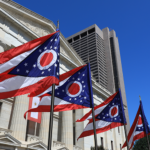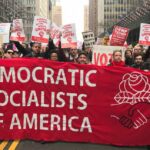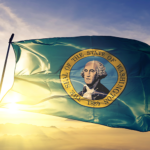Legislative leaders from both parties announced on Saturday the framework for a deal to end Washington’s 2015 budget impasse had been reached. They were careful to note, however, there was still work left to be done, and details of what that agreement might look like were not scheduled to be released until Monday.
Because the lawmakers are racing to finalize a two-year operating budget before Wednesday’s deadline for a partial government shutdown, there will be precious little time for the public to scrutinize the plan before it’s voted on — despite its having been in development since the first legislative session convened in early January.
Still, here are a couple of quick points to consider and look for:
• No “new” taxes or no tax increases at all?
While there were few specific details about the budget agreement this weekend, Republican leaders were quick to tweet that there will be no capital gains or B&O tax increases in the package.
And in the case of the former, that saves the Freedom Foundation the trouble of filing the lawsuit we had promised to file to prove the unconstitutionality of capital gains taxes.
But that’s not to say there won’t be any additional revenue.
Last week, the leaders from the Democrat-led House of Representatives backed away from their earlier demands and instead proposed “closing tax loopholes,” including imposing a tax on bottled water and modifying the sales tax waiver for out-of-state residents on retail purchases.
The compromise would allow Republicans to claim they had held the line on “new” taxes, but that’s not quite the same thing as blocking any taxes at all — which they could do, given their numerical superiority in the state Senate.
As much as they want a tax increase just on principle, what Democrats desperately want is for Republicans to agree to a tax increase — even a modest one — so they can take that issue off the table during the 2016 election.
With Gov. Jay Inslee up for re-election and only a handful of seats separating the two parties in both houses of the Legislature, Democrats don’t want to be the only party associated with higher taxes.
If the budget agreement “closes tax loopholes,” the question is which side will win the spin battle. Republicans will claim they kept their campaign promises by thwarting “new” taxes, but will voters make that distinction?
However you parse the words, generating additional revenue from taxes amounts to a tax increase — a fact the Democrats and their allies in the media will be quick to share with voters.
• Collective bargaining reforms or capitulation?
In Washington, collective bargaining agreements between the state and the unions representing public employees are negotiated in secret by the union leaders and the governor — who accepted millions of dollars in campaign donations in 2012 from those same unions.
Not surprisingly, the new deal worked out last summer and included in this year’s operating budget calls for nearly $700 million in pay raises for the workers.
Republicans had first proposed a budget under which state employees would each receive a flat $3,000 pay raise rather than the percentage-based raise called for in the CBA. But five weeks ago, Sen. John Braun (R-Centralia) proposed SB-6126, which would fully fund the package negotiated by Gov. Jay Inslee in exchange for (among other provisions) language requiring that all future collective bargaining negotiations be open to the public.
As is true of tax increases, the current GOP advantage in the Senate gives the party enough power to block any deal it doesn’t like — assuming its leaders are willing to call the Democrats’ bluff and risk a government shutdown. It would represent a huge wasted opportunity if Republicans agreed to a deal that funded the CBA but didn’t include the reform measures.
Whatever happens on the revenue side, Republicans could win the battle but lose the war if the reforms aren’t part of the budget agreement.
• LERC lurking in the weeds.
Washington’s Labor Education and Research Council (LERC) is little more than a publicly funded gift to the state’s labor unions.
Housed at South Seattle College, LERC seeks to advance labor’s interests by training union members in collective bargaining tactics and equipping them to campaign against right-to-work laws.
LERC has been described as an invaluable tool by the Washington State Labor Council; meanwhile, the program is under investigation by the state for unreported lobbying and other improprieties, like busing protestors to a pro-minimum wage rally in SeaTac two years ago.
LERC’s director left her post last month under a cloud of suspicion for a new job in Oregon.
LERC has been described as an invaluable tool by the Washington State Labor Council; meanwhile, the program is under investigation by the state for illegal lobbying and other improprieties. LERC’s director left her post last month under a cloud of suspicion for a new job in Oregon.
Democrats want to increase funding for the program to $500,000 while Republicans are demanding the subsidy be ended altogether.
Whether — and to what extent — LERC continues to be funded by taxpayers will be a good litmus test for whether Republicans were able to flex their newfound political muscle during this session or whether the state continues to be run by organized labor and its Democratic proxies in Olympia.










